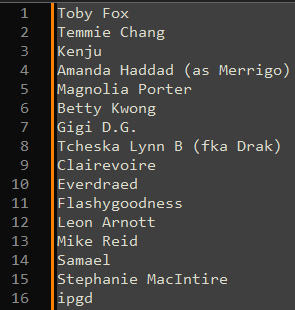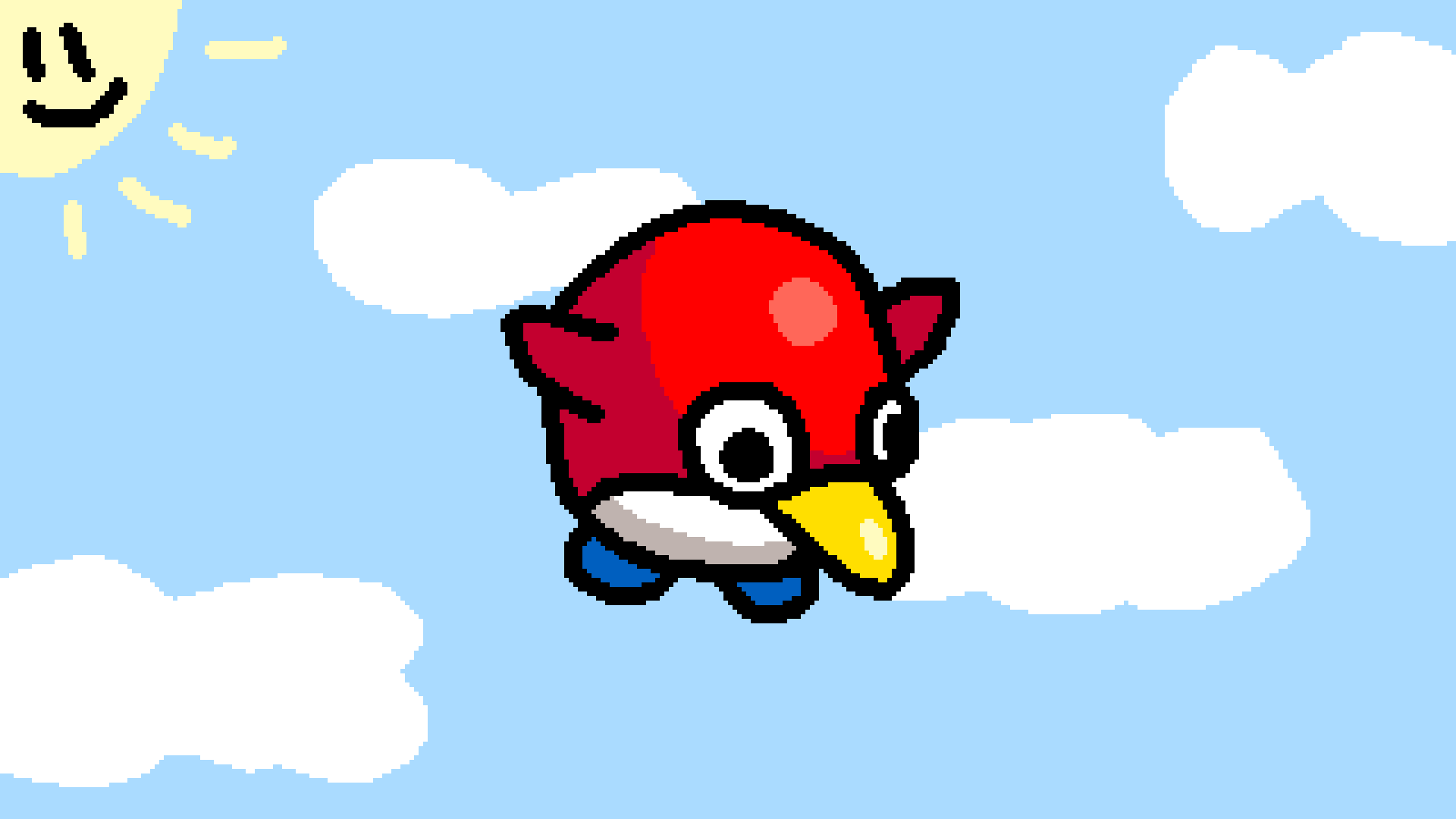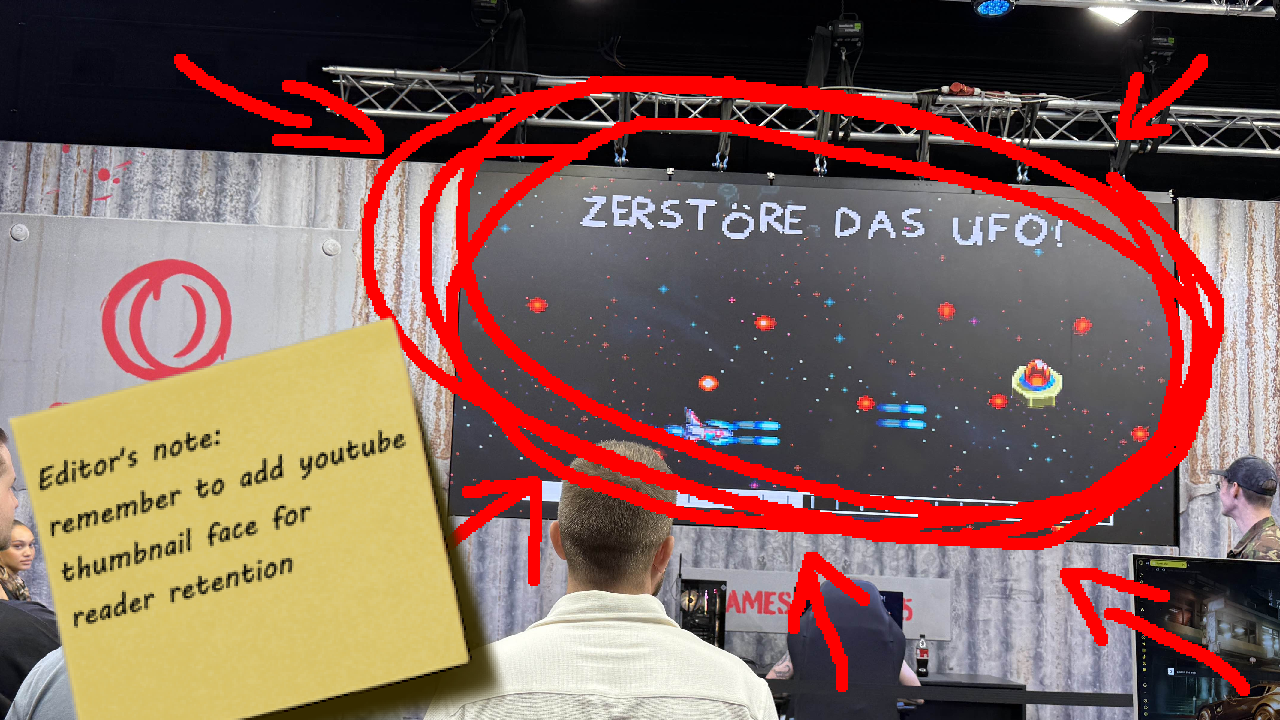
The Legend of the Solo Developer
This subreddit that has 100 000 developers on it had one post about a guy who made it, therefore it's definitely the right course of action! What do you mean survivorship bias?
Recently I've been hearing a lot about solo development. Indie games have been fracturing over time, turning teams into smaller teams and eventually into the smallest possible team, one person. I've heard some tech CEOs too deep into the AI rabbithole claiming that they can push it to zero people, but that's a statistical error, because those products are actually no longer games.
I have some words about the nature of where indie development has gone due to the growth of the internet. 1680 of them, in fact. This is the story of how the concept of gaming communities as a whole ended and oh god who replaced my table with a shredder, I just put the finished blogpost there and oh god oh fuck it's all gone my work is forever destroyed I'm going to cry.
I've decided to split the topic up because this was starting to get too big for just a paragraph in that post. Let's look at the reality of solo development and how it's kind of a lie. Unfortunately the only thing you're really developing solo is a wanker's cramp.
The Curious Case of the Alleged Solo Developer
There's a few games that fall under the solo developer umbrella. You've no doubt heard of them because the people who talk about how a one person development team is the ultimate artistic vision never shut the fuck up about them. Toby Fox's Undertale is one of these.
Let's look at the Mobygames listing for Toby Fox's Undertale. There are… 938 listed credits for the project. To be fair, most of these are kickstarter backers, who did not directly contribute to the game outside of payment (one more reason to not consider executives game developers), so let's whittle the list down to unique names who did something development-related:

There's 16 developers listed. This is actually close to the number of people who worked on the original Crash Bandicoot's core development team, 13. Andy Gavin is noted as being one of the very first solo developers, this is a well-known fact after all.
Alright fine, let's look up more. I went on Google and searched for solo developed games. Let's see here, there's a Reddit thread about this. Reddit's practically the home of the solo developer fervor we see today, so it couldn't possibly be wrong, right?

Sounds good to me. Let's now verify that claim and, oh what the fuck man

So far it kind of sounds like a lot of solo developer games mostly had a single lead developer who acted as the reins of the project and probably contributed a lot, but didn't do everything alone. This may or may not be foreshadowing.
Now let's examine our last case: Solo: A Star Wars Story. They were so proud of their development history that they put it in the ti–
How low can you go? So lo!
Okay so, clearly there's a reason developers don't work alone.
Well, yeah. You may not have heard of it, but there's this thing called social interaction that most people do. Shocker, I know. I only learned of it recently too and it surprised me greatly. It's upsetting that nobody had told me that I don't need to live in a cave and that my abilities of speech weren't just meant for narrating creepy voice logs for an aspiring horror game protagonist to find one day.
One of the most important abilities for a developer is to push themselves beyond their own limits. Game development is always a battle against some sort of limitations, be it the technical boundaries of the platform you're working on, time, or maybe your own stupidity.
Working by your lonesome is hard work. A lot of the things you'd normally get to share and put off your own plate are now stacked on it. I work in a team of two, and oftentimes the amount of work for some aspects is still pretty overwhelming. I can't even imagine taking up the remaining tasks I'm not doing at the moment. As a result, we have started to get a few crutches for moro– er, developers who want to work alone but don't have the skills and the madness to continue bashing their heads against the brick wall.
So more and more developers are trying to find ways around the hard parts, using Unity's packages, tutorial project frameworks for very broad genres or (may Allah forgive me for uttering this word) AI. These are not just potholing games further (another pet peeve of mine) but also distancing developers from the nitty gritty of making the game, which is a big part of developing the ability of understanding what makes a game feel good, let alone actually managing it.
All of this is a net loss for the developers, since game development itself can be a fun, rewarding experience, but if you abstract all the designwork and innovation out of it to grind the more repetitive tasks, you end up with bland products. Products, not games. You need to lessen your own workload and scope, and let your own worldview broaden, and both of these are achieved by working with other people.
It's never really guaranteed that you'll find success with anything you do, but the important part is that making it means something to you. In the pursuit of that meaning, it's imperative that you learn to fuck with others and appreciate what they bring to the table. Otherwise you'll just go fuck yourself.
Share this post
If you like what you just read, share it with your friends or on social media!
Stay in touch!
Sign up for our newsletter to get monthly exclusive newsletter posts, and more!
Comments
Join the discussion on our forum!Keep Reading

DI MONTHLY #8: Better Late Than Never
Good news, everyone!

DI MONTHLY #6: ALWAYS BUSY!!!
Me? Focusing on one project? Oh, don't be silly...

DI MONTHLY #5: I Swear This Isn't Intended To Be A Site Just For Newsletters
https://www.youtube.com/watch?v=Gs069dndIYk
